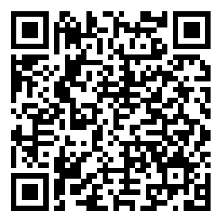Concept & Design: Sergio Carvajal-Leoni (Texas State University)
Methodological Support: Dr. Juliana E. Raffaghelli (University of Padova)
Narrative: Martina Zanchin (University of Padova)
“AI and the Digital Environment” – Ethics, Creativity and Postdigital Positionality
In a time when artificial intelligence generates images, voices, and stories that resemble our own, the question of what remains authentically human becomes urgent.
We offer a perspective born at the crossover of an artist, a researcher, and the ETH-TECH project. It is the result of flowing ideas and discussions that led us to imagine ways of engaging with something as elusive as the ethics of AI and data. The result shows humans and machines interweaving and dancing while asking how we navigate ethical dilemmas. And the answer is, yes, through human connection and activity. One might ask whether we can use AI while attempting to address the ethical conundrum generated by AI. This is, indeed, the artist’s choice, fully respected in this space.
Created by Sergio Carvajal-Leoni, an educator and media creator with a strong background in digital storytelling and community engagement, this video transforms academic inquiry into a poetic reflection. Currently a Ph.D. researcher at Texas State University, he explores how artificial intelligence and digital media can serve as tools for reflection and transformation in educational practice. Through this work, he invites educators and creators to question their own place within today’s post-digital landscape.
Combining cinematic imagery, AI-generated content, and intimate reflections, the video invites viewers to suspend judgment and enter a space of dialogue between human intention and algorithmic suggestion.
Rather than offering answers, it provokes awareness, making visible the subtle negotiations we perform every day between intuition, automation, and meaning-making.
Across different voices – including Dr. Juliana E. Raffaghelli (University of Padova), Dr. Paula Lozano Mulet (University of Barcelona), Jeff Dell (Texas State University), M. Valerio Rossi (Azzurro Digitale), Matteo Fabbrini (FABA), and Nicolò Santin (Gamindo) – the video traces a constellation of perspectives: from scholars reflecting on ethics and pedagogy to entrepreneurs exploring creative and responsible uses of AI. From artists who defend the “intelligence of the hand” to professionals integrating AI ethically into their work, the video shows how reflection, ethics, and creativity can coexist in the age of machines.
Rather than opposing technology and humanity, it calls for awareness, responsibility, and imagination in navigating our shared post-digital reality – through our capacity to reflect, create, and care within it.
As Sergio notes, “technology is here to stay, yet the challenge remains to stay human, informed, and make better collective decisions about it.” Through this lens, the video becomes both a reflective statement and an open invitation to rethink how we position ourselves within today’s post-digital condition.
In the final part of the video, viewers are encouraged to reflect on their own stance toward technology – their post-digital positionality, and following Dr. Sarah Hayes’ (2021) reflections who invites educators to consider how human and digital identities intertwine in today’s learning environments.
How do you position yourself within today’s post-digital world, where human and machine creativity constantly intersect?
As part of this reflective exercise, participants are encouraged to:
🎨 Create an art image accompanied by a short creative text (a paragraph, a blurb, or a poem) expressing their relationship with technology and its role in society.
🤖 To support this process, the activity introduces Reverend Paulo Marshall McFrerean, a custom AI chatbot inspired by the thought of Marshall McLuhan and Paulo Freire. Learners can engage in dialogue with this AI collaborator to refine their ideas and co-create visual or textual outputs.
✋ The task can be carried out through AI-assisted creation, analogue drawing or writing, or any other expressive medium of choice.
Above all, this activity is an invitation to play, explore, and think critically about the post-digital world – connecting personal creativity with ethical reflection.
Participants featured in the video:
- Dr. Juliana E. Raffaghelli – Associate Professor, University of Padova
- Dr. Paula Lozano Mulet – Scholar/Lecturer, University of Barcelona
- Jeff Dell – Artist & Professor, Texas State University
- M. Valerio Rossi – Head of Webpladoo, Azzurro Digitale
- Matteo Fabbrini – CEO/Co-Founder, FABA
- Nicolò Santin – CEO, Gamindo
- Michela Trombetta & Elena Martino – Doctoral Researchers, LUMSA University, Rome
- Dr. Joellen Coryell – Professor, Texas State University
- Dr. Rian Roux – Researcher/Lecturer, University of Southern Queensland
Reference in text: Hayes, S. (2021) Postdigital Positionality. Developing Powerful Inclusive Narratives for Learning, Teaching, Research and Policy in Higher Education. Brill
Sarah Hayes, Ph.D. (2015), Aston University, Birmingham, is Professor of Higher Education Policy at University of Wolverhampton. She has published articles, edited collections and is the author of The Labour of Words in Higher Education: Is it Time to Reoccupy Policy? (Brill Sense, 2019).
A Conversation Beyond the Screen
Concept and design: Sergio Carvajal-Leoni
Step into dialogue with Reverend Paulo Marshall McFrerean – an AI voice shaped by the thoughts of Marshall McLuhan and Paulo Freire.
Ask, provoke, imagine together. Use the link or QR code below to begin your exchange and explore your own post-digital positionality.

https://chatgpt.com/g/g-jAV1Cdbo6-reverend-paulo-marshall-mcfrerean
The Cloud is Not Made Out of Clouds
A reflection on the material cost of the digital world.
Created by Sergio Carvajal-Leoni for the concept “Planetary Ruins” (part of the Eth-Tech Framework) within the Eth-Tech Art Contest.